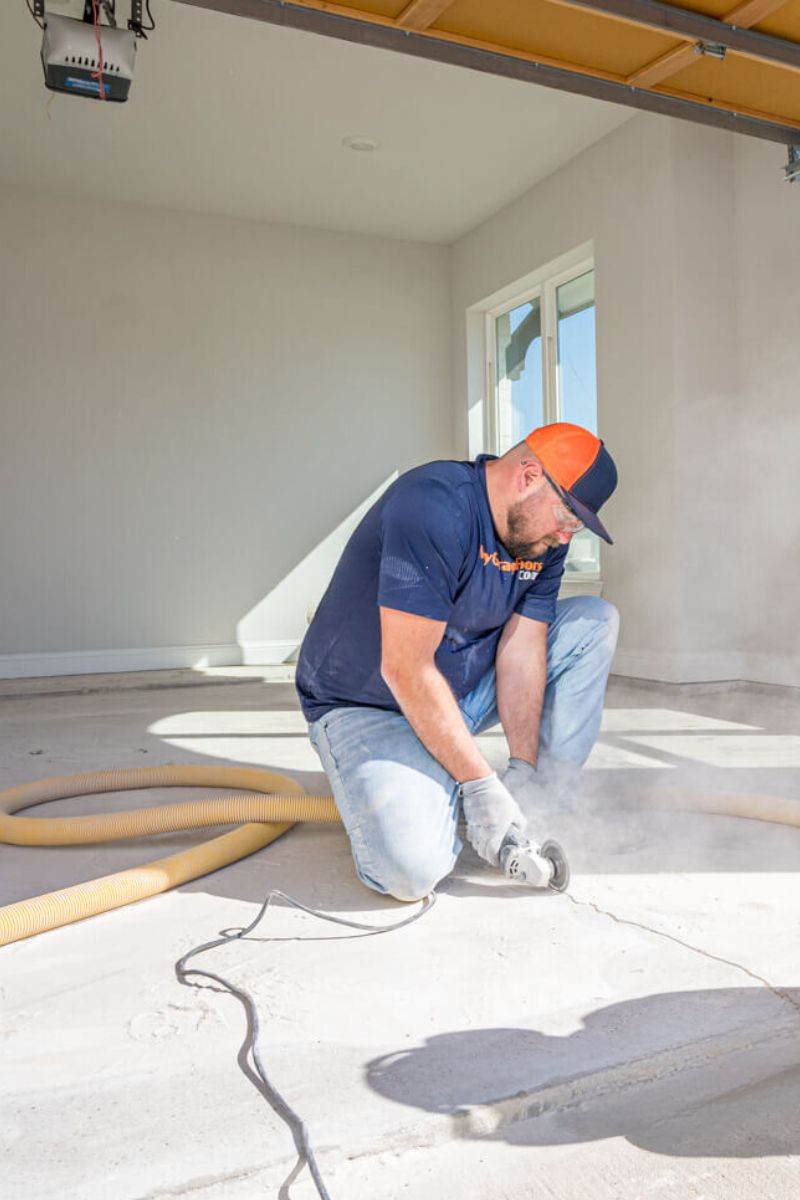
A cracked garage floor can be a real headache, affecting both the aesthetics and functionality of your space. At MyGarageFloors.com, we’ve encountered various cases of garage floor cracking, and we’re here to shed light on the seven common causes. Knowing the root of the problem is the first step in finding effective solutions.
One of the primary culprits behind garage floor cracks is a settling foundation. As the ground beneath your garage shifts and settles, it can lead to stress on the concrete, resulting in cracks over time.
Frequently parking heavy vehicles or dropping heavy objects on your garage floor can contribute to cracks. The impact creates stress points, weakening the concrete and causing visible cracks.
Extreme temperature changes, especially in regions with harsh winters, can cause the concrete to expand and contract. This constant movement can lead to the formation of cracks over time.
During the initial construction of your garage, if the concrete mix wasn’t properly proportioned, it can result in weakened concrete prone to cracking. Poor construction practices can have long-term consequences.
Control joints are intentional grooves in the concrete designed to control where the cracks occur. Without these joints, the concrete may crack randomly, affecting the overall stability.
Water is a common adversary for concrete. If your garage floor isn’t adequately sealed, moisture can seep in, causing the concrete to weaken and crack over time.
Exposure to harsh chemicals, such as oil, gasoline, or certain cleaning agents, can break down the composition of the concrete, leading to cracks. Regularly cleaning up spills can help prevent this.
By identifying the causes of garage floor cracking, you can implement effective solutions to preserve the integrity of your space. Whether it’s addressing settling foundations, heavy loads, or temperature fluctuations, taking proactive steps will help you maintain a garage floor that’s both functional and visually appealing. Consider MyGarageFloors.com’s Polyaspartic coating for a lasting solution to prevent future cracks.
Mygaragefloors.com is an online platform with in-house installers dedicated to helping homeowners upgrade their garage floor with a superb Polyaspartic floor coating at the lowest price in the nation.
Stop wasting time on sales meetings.
Save your time and avoid their commission. Get your garage floor coatings installed today at the lowest price.
Check pricing
469-990-9990
Mygaragefloors.com is an online platform with in-house installers dedicated to helping homeowners upgrade their garage floor with a superb Polyaspartic floor coating at the lowest price in the nation.



Lots of companies claim to use Polyaspartic, but they only apply it for the final coat.
Using a mix of Epoxy or Polyurea for the base coat can lead to yellowing and peeling over time.
Insist on a full Polyaspartic system for both base and top coats.